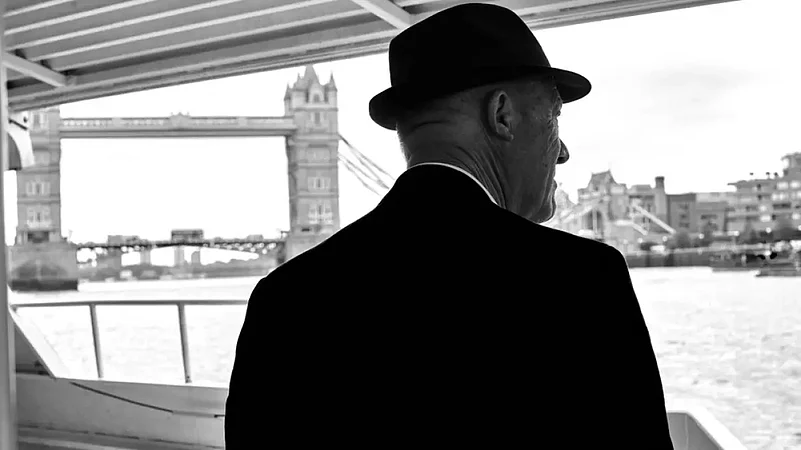How My Father Became English
Short, hook-nosed, and soft-dark-eyed father,
how far you have come from poor inner-city flats,
from hiking in the Tatras, rowing down the Danube,
from anti-Jewish laws and jobs in offices,
warehouses and factories, carrying sinks and baths
through streets of Budapest; through forests in White Russia,
riding back on trucks to fallen tenements,
bare houses emptied of murdered relatives,
back to inflation and worthless paper money,
speechmaking, prize giving, Stalinist paranoia,
revolution, night-flight on foot across fields
with nothing in your bag but a tiny cache of photographs,
to rooms and maisonettes, terraces and suburbs,
slowly but surely into the arms of Thatcher,
with those great soft dark eyes of yours,
into an Englishness that formed a warm blanket
around your shivering body, in puritan comforts
floating to safety with flexible freedoms,
into whose distances you could at last melt,
into whose fabled and extraordinary greenness
you could at last read yourself, as into a novel,
while falling, decanting your spirit from your body.
Sweet and annoying father, was this the crown you dreamt on,
you who had become, and not without terrors
middle-class, yes, a self-made Englishman,
severally and nearly, so almost but not quite,
in the ageing of your body and the minor but growing
chaos in the bureaus and systems of your head
which still is capable of sorting through papers,
remembering birthdays, visiting the cemetery,
writing up anecdotes and words of lost proverbs,
sweet and annoying, and certainly pale
and certainly, in your own peculiar fashion
middle-class, and certainly male, though by no means
as certainly English, aspiring, aspiring
to the calm hills that rise like tombstones around you.
Rain in Wartime
1. Vertical
The rain keeps falling
as if out of some regret
it can’t speak about.
It falls through the air
in its inexpressible
sorrow. But there’s joy
in its abandon,
its sheer verticality.
How lovely rain is,
how ambiguous.
2. Out of the rain
It’s that silver rain
again. The consolation
of tiny mercies.
And there’s the clear thrust
of the wind, a country blown
into its future.
Soaked birds still emit
their flute-like claims to selfhood.
Nothing will stop them
once they are own light.
3. In the city of the imagination
In the cities of
the imagination, rain
falls on damp gardens,
its soft hands tapping
on some sleeping breathing thing.
Perhaps it’s the earth
itself that’s breathing
city air. Under it, dreams
go about their tasks,
laying down their maps.
4. Low Cloud
After a few days
the dead began to hover
in the smoky air
like low cloud. Their tears
had washed the streets clear of blood.
It was safe again.
But they kept weeping
and running into gutters.
The weather had changed.
It would rain for years.
(George Szirtes was born in 1948 in Budapest and came to England as a refugee following the Hungarian Uprising in 1956.
He trained as a painter in Leeds and London, and is the author of several collections of poetry, his first being The Iron Clouds (1975). His Selected Poems 1976-1996 appeared in 1996, and his New and Collected Poems in 2008. His poetry collection Reel (2004), was awarded the 2004 T.S. Eliot Prize. He has also edited poetry books, including co-editing The Colonnade of Teeth: Twentieth Century Hungarian Poetry (1996) and An Island of Sound: Hungarian Poetry and Fiction before and beyond the Iron Curtain (2004).
George Szirtes became a Fellow of the Royal Society of Literature in 1982 and has since won many awards for his work including Man Booker International winner, as translator of László Krasznahorkai. He lives in Norfolk where he teaches Creative Writing at the Norwich School of Art and Design and the University of East Anglia. His New and Collected Poems was published in 2008, and his recent poetry collections include The Burning of the Books and other poems (2009) and Bad Machine (2013), both shortlisted for the T. S. Eliot Prize.)





















